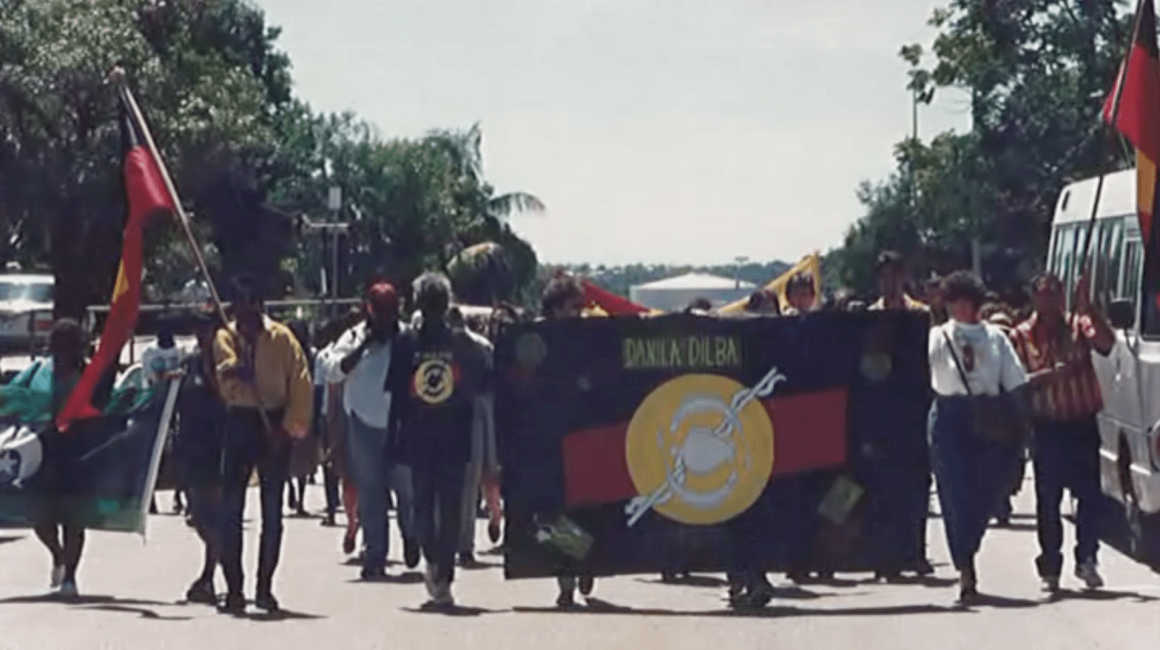
History

The story of Danila Dilba Health Services (DDHS) began in the 1970s—
a time of great activism for Aboriginal and Torres Strait Islander people across Australia.
After Cyclone Tracy hit Darwin in 1974, people were evacuated to southern cities where local Aboriginal medical services had already been operating. Darwin-based Aboriginal people were impressed with the services and were motivated to establish one in Darwin.
DDHS grew out of the community, with people holding meetings, lobbying government, lodging petitions and even holding a ‘sit-in’ of government offices for a culturally appropriate primary health service for Biluru (Aboriginal and Torres Strait Islander people) in the Yilli Rreung (Greater Darwin) region.
Persistence and dedication paid off. In 1991, DDHS was established with just one clinic and seven staff. Today, we operate a network of nine clinics, including a mobile outreach clinic, and employs more than 200 multidisciplinary staff across the region.
Our staff deliver high quality, integrated health services that include a range of specialist and allied health, social and emotional wellbeing services, as well as health promotion and education. Around 15,000 people use our services each year which is made up of at least 5,000 families.
The name Danila Dilba Biluru Butji Binnilutlum was given by the Larrakia people.In the Larrakia language Danila Dilba means ‘dilly bag used to collect bush medicines’ and Biluru Butji Binnilutlum means ‘Aboriginal people getting better from sickness’.
As an Aboriginal Community Controlled Organisation (ACCHO) we hold ourselves accountable for representing Biluru people. Danila Dilba is a safe place for Indigenous people to raise their concerns and find solutions to their health concerns.
Why DDHS was set up

Please be advised that the following may contain images, voices and videos of deceased persons.
Barb Cummings, founding member, DDHS’s first patient
“My earliest time in Danila Dilba started in the late seventies really. I was working as a field officer with DAA and the concept arrived about the need to have our own medical service. And with the late Sally Ross and who was from Alice Springs but she worked as a health worker in the Katherine region, and I knew the population here in the Darwin region. So we chose to set up a committee a Board of people who would be able to you know direct and look at establishing such a service. That’s how it all started right from there. Rhonda Calma and myself who worked in the town camps, we did a survey in the town camps to gauge an opinion of those people as to whether or not they would like to have their own medical service, and they agreed they didn't want to go to the hospital… they were happy to have their own medical service.”
Sutti Ah Mat, founding member
“For a long, long time there were a number of us that wanted to have their own community controlled medical services because of the obvious reasons where we were going to the hospital, & we felt that we weren't getting that type of service that we should have been getting because of cultural reasons. I guess in a lot of cases a lot of our mob weren't going to the hospital seeking doctors. It's about us self-determining what we want to see happening at the service. We decide on the priorities for the type of service that we provide and if we have situations where we have an outbreak of some sort of illness, we're able to respond much quicker, because we're on the ground & we're listening to the community. And that's important, that we listen to the community. I think it's a very good model because our numbers increased quite substantially, and that's a good indication that the service that you're providing is meeting the needs of the clients.”